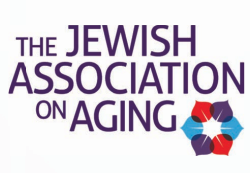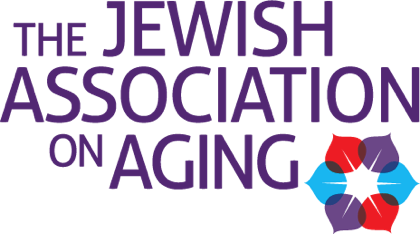Hearthstone Training at AHAVA
AHAVA’s Leading-Edge Memory Care Training Improves Quality of Life for Those Living with Alzheimer’s Disease and Related Dementia
While there is not yet a cure for Alzheimer’s disease and other forms of dementia, the science of improving the lives of loved ones living with memory loss has progressed significantly. Today, memory care experts say that a combination of innovative features are measurably improving the quality of care and quality of life of those living with progressive memory loss.
These foundations of quality memory care include:
- evidence-based environment design that maximizes the individual’s comfort, functionality and productive activity
- leading-edge engagement therapies that focus on resident preferences to improve mood and expand connections to the world, while reducing challenging behaviors such as anxiety, agitation, apathy and aggression
- innovative training methods that empower care staff to build positive relationships with residents to provide necessary care and to also act as engagement therapists
Establishing a Culture of Quality through Evidence-Based Training
Deborah Winn-Horvitz, President & CEO of The Jewish Association of Aging, is a proven advocate for innovation that improves the care of residents. She shares, “In conceptualizing the new AHAVA Memory Care Residence, we recognize the needs of those living with dementia in the community in growing numbers. To better serve them, we wanted to incorporate all three of these important, proven foundations of quality memory care to create a truly unique center of excellence for loved ones with memory loss.
“To provide the best care possible, utilizing innovative and proven environmental design approaches, we partnered with Dr. John Zeisel, President of the Hearthstone Institute who is an internationally recognized authority in the areas of non-pharmacological Alzheimer’s treatment, innovative therapies and purpose-built design. Dr. Zeisel consulted to on the physical design of AHAVA to create a purposefully supportive space and David Kamp of Dirtworks, who specializes in therapeutic landscape design for healthcare environments, designed our two secure outdoor spaces.
“In order to place the residents’ well-being always first and foremost, we knew that beyond having a well-designed space, we needed a plan to engage and empower our residents to continue to be an active member of our community and to engage and empower our staff to support this. Partnering with the Hearthstone Institute provided us with an evidenced-based roadmap to bring this vision to fruition.”
“Working with Hearthstone, we realized that before the renovations began, we needed to assure that all members of the AHAVA care team – from the executive team to our service employees—were trained in the latest best practices for memory care communication, care and therapeutic activities. In this way we have taken caring staff and trained them on how best to communicate and support our residents living with ADRD and have empowered those staff to get to know residents and make a meaningful, lasting connection with the individual residents,” says Winn-Horvitz.
How the Hearthstone Model Makes a Difference
The Hearthstone Institute has trained leading memory care residences across the nation using the “Hope Model” of care based on Zeisel’s best-selling book, “I’m Still Here.” Hearthstone has conducted training for the prestigious Mayo Clinic’s Charter House senior care community, among others, and was also featured in the Mayo Clinic Alzheimer’s article, “Choice and control matter for those living with dementia care.”
In that article, Angela Lunde of the Mayo Clinic Alzheimer’s Disease Research Center describes Hearthstone’s evidence-based model of memory care. “Most behaviors such as anxiety or agitation are triggered by factors that can be altered, including the environment, the task or our communication style. When we say or do things that threaten an individual’s need for choice and control, they’ll likely react with anger or agitation. Who can blame them?”
“They (Hearthstone) don’t assume the residents are incapable of making decisions. Instead, residents are encouraged to make decisions every day from when to get up and what to eat to what music to be played at dinner and what current events to discuss (with the help of the newspaper) at morning circle.”
“Residents are invited to engage in, and even lead, meaningful activities based on their preferences, interests and skills. The staff value the time spent supporting people with decision-making as much as the time spent doing other tasks,” Lunde says.
“They do more with the residents than for them. Residents are allowed and encouraged to remain independent until they no longer can. Persons with dementia can have a good life, we can all make a difference, there’s hope.”
Winn-Horvitz adds, “The Hearthstone model stands in clear contrast to conventional care methods that have focused on the individual’s deficits and lost abilities and have thereby limited their potential for engaging in the things they can still enjoy. At AHAVA, we embrace Hearthstone’s forward-thinking philosophy of memory care that enables loved ones to live their best possible lives with joy, dignity and purpose.”
A More Mindful Approach to Resident Communications and Relationships
Martha Martel, Administrator of AHAVA Memory Care says, “By simply changing the way our care team communicates with residents, we’ve learned that we can increase their interest and engagement in various activities. The best method of communication with residents who have dementia uses more than just the words, and recognizes the right and need of the individual to make their own choices.”
Dr. Zeisel adds, “For example, instead of asking a resident for his choice of a lunch meal, show both choices on the plates as you ask the question. Instead of buttering the toast for him, demonstrate the task in front of him and then ask him to continue. Above all, it’s important that the care staff not make the classic mistake of assumption: Just because a resident chose chocolate cake for dessert on Tuesday doesn’t mean she will want that item every day.
“Meaningful engagement is the goal of all communication, and that’s not always language-based. We train direct care staff to be leaders in resident engagement and that is what benefits loved ones with dementia the most. It’s about social interaction and about how people feel.”
The new AHAVA Memory Care community, as well as all dementia care units throughout the JAA, was awarded the Memory Care Center of Excellence designation by the Hearthstone Institute after completing their extensive training and assessment process. It is anticipated that AHAVA Memory Care will be ready to open in Summer 2017.
If you have questions about the new AHAVA Memory Care Residence, we invite you to contact Amy Dukes, Memory Care Liaison, at today at 412-205-6556.

